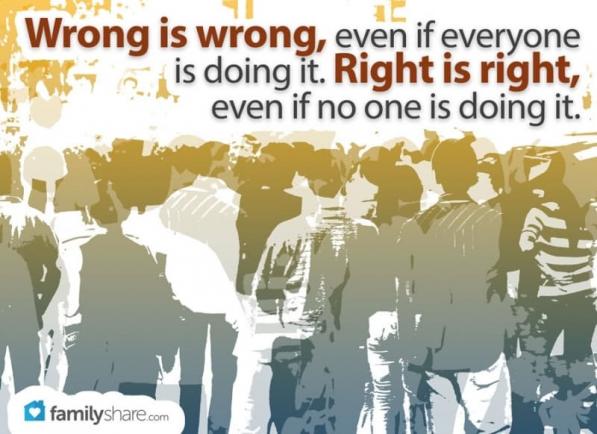
As your child grows older the influence and effect of friends and peers on their life becomes more and more prevalent. Peer pressure can become both a positive and a negative influence on them and the decisions they make. For this reason there are 3 very important things you should do with your child as they reach these critical ages and are presented with the outside pressure from peers.
1. Teach them their self-worth
A child that feels valued at home will not be as likely to give in to negative influences when they are away from home. Making sure that your child feels loved and feels valued in everything they do is probably the most important thing you can do as a parent to help them combat the outside influences of the world. If your child feels good about who they are and confident in their choices and opinions, they will be less swayed by the choices and opinions of others. Talk to your child. Let them know that you value them, that you trust them and that they are important just as they are. Include your child in important conversations and truly take their input into consideration. This will help your child feel valued and more self-confident in their own decision making processes.
2. Encourage interests
Every child has a unique set of talents and skills. Help your child discover these interests and skills and do everything you can to encourage them. A child that has their own interests is less likely to be persuaded by a group of peers. Not only will having an interest alone help your child, but often they will make a different set of friends who also share those interests. This will provide in return a positive peer group that can be effective in helping to encourage your child further in achieving goals related to their interests.
3. Have good lines of communication
While your child is young, open the lines of communication effectively. If you talk to you child about everything when they are younger, chances are they will talk to you about the more important stuff when they are older. With open communication you can talk to your child about your concerns as they relate to peers and peer situations. You can begin to talk to them about specific situations and scenarios that they might face and together create a comprehensive plan as to how to face or deal with those situations. This important time of talking to your child and helping them to decide how they will act is important. If a child is already familiar with a choice that is presented to them, and have decided on a course of action, they are much more likely to follow that plan than if they have never discussed the situation before.
While peer pressure can be an important influence in your child's life, parents and family are still the most important. If your child feels loved, valued and supported at home, they are more likely to avoid the pressures of their peers, turn to you for advice, and find their own path through important choices. The important thing is to remember that as an influence for good in your child's life you need to start when they are young and be consistent.

